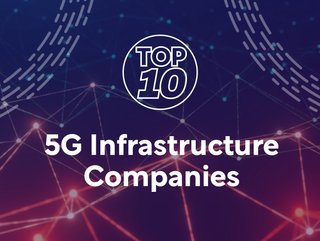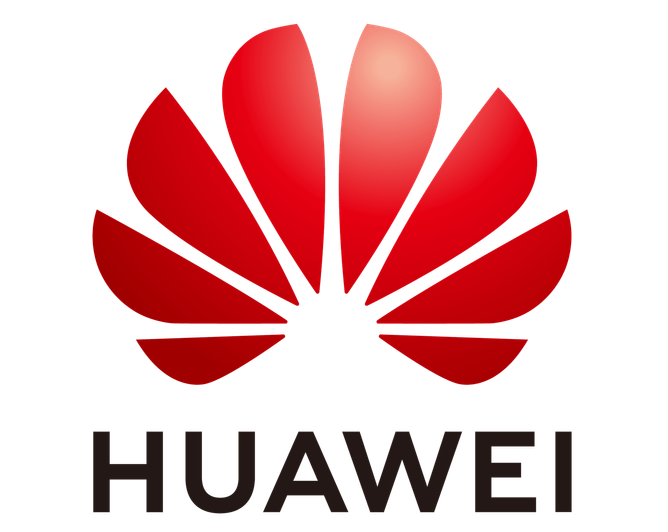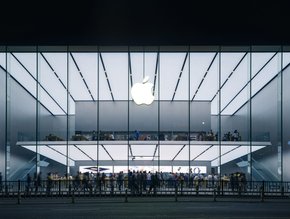
Able to offer higher performance and improved efficiencies, 5G technology has been working to empower new user experiences and connect new industries throughout 2023.
Within the data centre sector, some of the benefits of 5G networks include delivering higher peak data speeds, lower latency, greater reliability, an increased network capacity and increased availability. With 5G technology, industry leaders like those featured in this list are aiming to create a smarter and more sustainable future.
As 5G continues to revolutionise the telecommunications sector, Data Centre Magazine rounds up 10 of the leading companies committed to developing the relevant infrastructure.

10. Cisco
The Cisco 5G cloud-to-client approach aims to unify multivendor mobile solutions into an open and cloud-native architecture. Users can build a 5G network that is cost-efficient, simplified and trustworthy, allowing them to differentiate their business with connected experiences and cloud services.
The company offers a broad range of 5G solutions, including an open vRAN, built in trust and security and Internet of Things (IoT) for the 5G era. It prides itself on simplifying an open and converged access network.

9. AT&T
AT&T is an American multinational telecommunications company headquartered in the United States. It is the world's fourth-largest telecommunications company by revenue and the largest wireless carrier in the US.
In March 2023, AT&T announced that it would be expanding its 5G and fibre network to better connect both urban and rural communities worldwide. Its mission-critical focus in this regard has resulted in an investment of more than US$140bn over the last five years to bolster network resilience

8. Hewlett Packard Enterprise (HPE)
HPE offers a broad range of 5G services for telcos and enterprises with the goal of accelerating innovation. Designed from the ground up for cloud-native, multivendor infrastructure and applications, HPE 5G Core Stack provides a fully pre-integrated 5G solution that’s ready to deploy and consumable on a pay-as-you-go basis.
In addition, the company deployed private 5G and WiFi network at the 2023 Ryder Cup, with the goal of delivering new ultra-secure capabilities, expanded coverage and enhanced fan and staff experiences

7. Qualcomm
Masters of wireless technology, Qualcomm has been developing 5G consistently for years, as it invents new 5G technologies that redefine the boundaries of wireless. In its second wave of 5G innovations, it aims to unleash the full potential of 5G, establishing future technical foundations.
The company’s 5G Advanced services will support new devices, services, spectrum and deployments. It also views 5G and AI as complementary advancing together and mutually benefiting each other in terms of performance and efficiency.

6. Intel
Intel architecture powers network transformation from cloud to edge, providing peak performance for the networks of today and tomorrow. Its 5G networks aim to deliver a data-centric future where compute is more intelligent, allowings its customers better agility and scale ability.
The company’s broad ecosystem works to expand 5G core readiness across industries and applications. Throughout the data centre sector, it uses its leadership in cloud computing to transform 5G networks from the cloud to the edge.

5. Rakuten
Rakuten is a Japanese technology conglomerate based in Tokyo, founded by Hiroshi Mikitani in 1997. Working together with its partners, the company strives to serve users and businesses across 30 countries and regions worldwide.
Just three-and-a-half years after launching, Rakuten Mobile announced in October 2023 that it is leading in 5G upload speeds in Japan. It triumphed over its competitors with 5G download speeds of 180.9 Mbps. The company has upgraded its software with additional features like lower latency.

4. Nokia
Nokia Corporation is a Finnish multinational telecommunications corporation established in 1865. It is a company committed to expanding on its 5G capabilities, offering a wide range of technology and architecture solutions.
The company’s 5G Standalone Core, for example, aims to free the innovation within a company’s network, so that they can automate, customise and monetise their core with total confidence. At the end of 2023, it was announced that Nokia and BT Group are partnering to drive 5G monetisation opportunities

3. Ericsson
With 5G technology, Ericsson is working to create a smarter, safer and more sustainable future. With 157 live 5G networks across 66 countries, the company is at the forefront of the 5G, Internet of Things (IoT), edge computing and cloud network infrastructure era - making it the first company to bring 5G to four continents.
Its innovative portfolio includes Ericsson Radio System, which allows operators to launch and grow 5G coverage fast. Its leading technology aims to drive society forward

2. Huawei
A leading multinational technology corporation, Huawei recognises the value in 5G and works closely with its customers and partners to innovate and accelerate its success. Between 2009 and 2013, Huawei invested more than US$600m into 5G technology research. Following this, in 2017 and 2018 Huawei invested almost US$1.4bn into 5G product development.
In April 2023, Huawei executives revealed 5.5G connectivity that will take consumers closer to the peak speed with a 10Gbps download, as 5G speeds worldwide decreased thanks to the broader adoption of its connectivity on existing networks.
Huawei also completed interoperability development testing (IODT) with mainstream chip, terminal and network vendors. In addition, the company pioneered the launch of an industry-first 5G commercial chip with the Balong 5G01 and 5G commercial CPE compliant with 3GPP Release 15. It states that it is the only vendor that can provide end-to-end commercial 5G industry solutions

1. Samsung
Samsung continues to push for 5G delivery and provides commercial 5G services across the world, particularly in Korea, the US and Japan. The company prides itself at being at the forefront of bringing 5G mobile networks and technology to people all over the world.
The company holds a vision of a connected world bringing together multiple technologies, including AI, IoT, cloud data and computing in order to transform everyday experiences.
Its 5G Network supports hybrid virtualisation using both VM and container, providing network slices depending on service characteristics. Additionally, Samsung 5G Network Automation architecture provides 5G services by integrating RAN, Core and MEC centering on the Samsung Network Automation Platform.
Samsung’s 5G also offers high bandwidth and exceptional speeds that are supercharging services like high-definition (HD) video streaming, virtual reality and augmented reality (VR/AR), in addition to enabling mobile device users to stay connected like never before
******
Make sure you check out the latest edition of Data Centre Magazine and also sign up to our global conference series - Tech & AI LIVE 2024
******
Data Centre Magazine is a BizClik brand
- MWC24: Harnessing AI to Modernise Telcos with Tech MahindraTechnology & AI
- Huawei Cloud Delivering Powerful Innovations for IndustryTechnology & AI
- Nokia & STL Partner to Enhance Digital Business ConnectivityNetworking
- 5G Edge Network Slicing: New Revenue Stream for Data CentresNetworking






